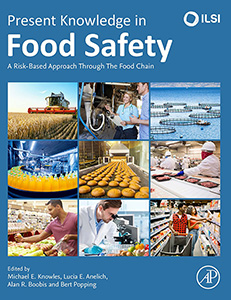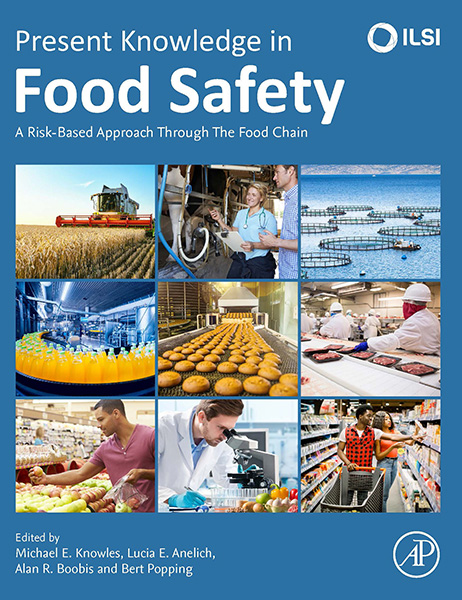 Present Knowledge in Food Safety: A Risk-Based Approach Through the Food Chain presents a holistic approach to scientific advances and applications in risk assessment at key stages in the food supply chain. Conceptually modeled after ILSI’s highly successful Present Knowledge in Nutrition, this exciting book is the first to provide coverage of new and emerging science in the risk assessment paradigm as applied to chemical, physical and microbiological safety issues at each contiguous stage of the food chain – from farm to consumption.
Present Knowledge in Food Safety: A Risk-Based Approach Through the Food Chain presents a holistic approach to scientific advances and applications in risk assessment at key stages in the food supply chain. Conceptually modeled after ILSI’s highly successful Present Knowledge in Nutrition, this exciting book is the first to provide coverage of new and emerging science in the risk assessment paradigm as applied to chemical, physical and microbiological safety issues at each contiguous stage of the food chain – from farm to consumption.
Under the guidance of four leading international experts, this book covers exposure-led risk assessment and management of changes in food composition caused by changes intentionally made or adventitious at all key stages of food production. As the first book to do this in a single volume, this is a first-line resource for professionals, as well as graduate and post-graduate students in the following and related fields:
- Food science
- Toxicology
- Microbiology
- Medicine
- Public health
- Food safety
- Nutrition
- Chemistry
- Pharmacy
- Agriculture
- Aquaculture
Audiences also include government agencies, industrial scientists and policy makers involved in food risk analysis around the world, as well as professionals in food and agriculture production.
Present Knowledge in Food Safety introduces scientific advances at all stages of production to improve the reliability, predictability and relevance of food safety assessments and the communication challenges thereof for the protection of public health.




